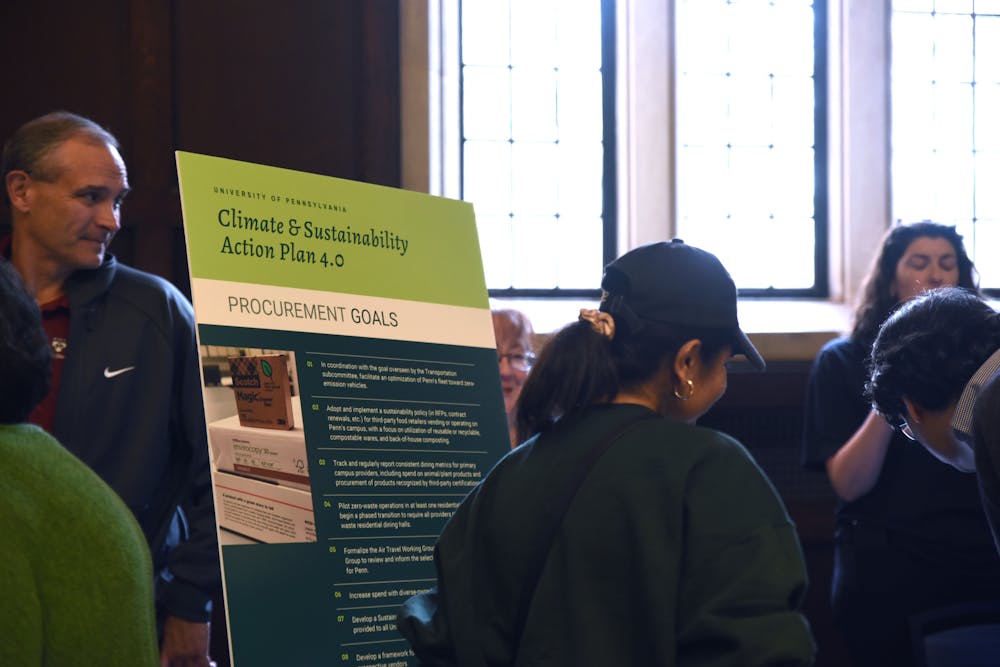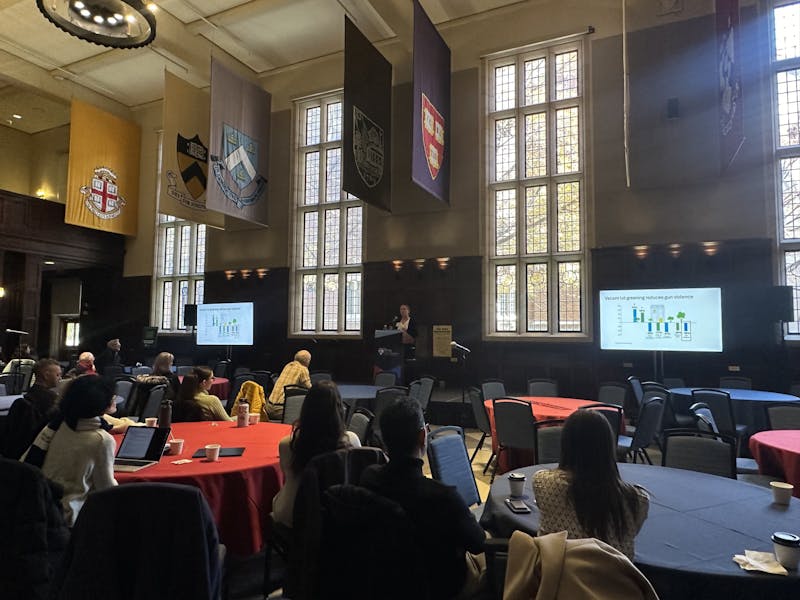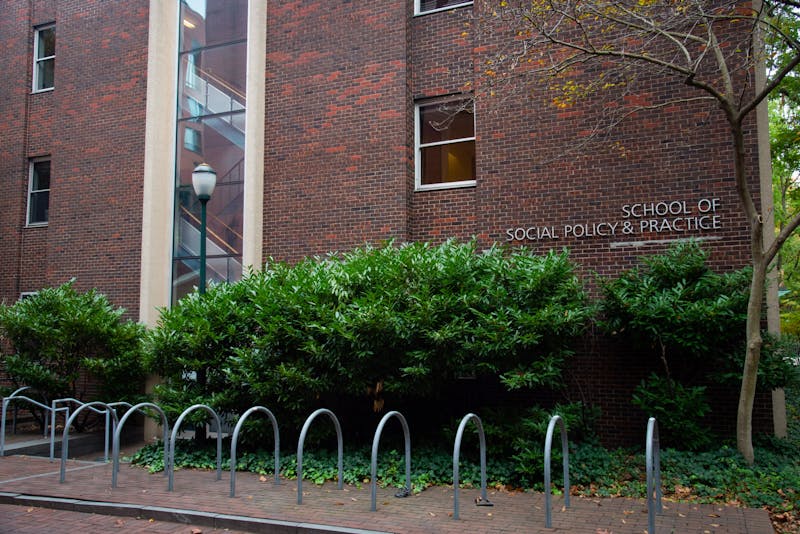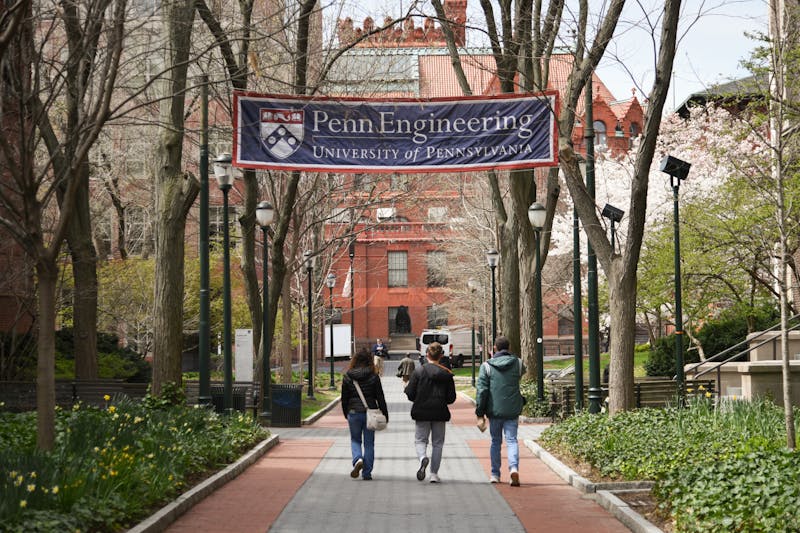
Penn community members attend the Climate and Sustainability Action Plan 4.0 Open House on Nov. 19.
Credit: Chenyao LiuPenn announced the fourth iteration of its Climate and Sustainability Action Plan on Monday, outlining sustainability goals for the University through fiscal year 2029.
This iteration, which is known as CSAP 4.0, targets waste reduction and sustainable purchasing while highlighting a new action plan for the University of Pennsylvania Health System. It builds on three previous sustainability plans, which chart a path for University-wide carbon neutrality by 2042. Penn introduced the plan at an open house in the Hall of Flags on Tuesday.
“Since Penn launched its first sustainability plan in 2009, we have made extraordinary strides across campus, in our teaching and research, and in our contributions to the world,” Interim Penn President Larry Jameson wrote a press release. “Penn now serves as a national sustainability leader for higher education and the world.”
Sustainability Director Nina Morris told The Daily Pennsylvanian that the overarching goal of the new plan “is really to expand and be more inclusive,” while “moving us all together towards our shared vision for climate action and sustainability.”
“What I'm excited to see is the development of our decarbonization plan,” Morris said, adding that the plan will help Penn develop "specific, actionable strategies" towards the 50% decarbonization needed to reach carbon neutrality.
Under the new plan, the University will prioritize sustainable purchasing practices, including piloting zero-emission vehicles and exploring zero-waste operations in dining facilities. The plan also calls for the creation of a working group aimed at reducing single-use plastics on campus by 2029.
Commuter Benefits Program Manager Michael Neborak discussed the transportation pillar of the plan at the open house. Neborak introduced an initiative to make commuting more efficient for the Penn community, which will include a commuter concierge program online and a commuter services location in the Penn bookstore.
Penn Medicine's new sustainability plan aims to reduce the use of environmentally harmful chemicals by adopting new sanitation technologies. It also includes replacing all single-use plastics currently used in food service initiatives across the hospital.
“Our focus on the future drives innovative possibilities in medicine and challenges us to also consider how providing health care impacts the health of the environment,” CEO of the University's Health System Kevin Mahoney wrote in the press release. “The Climate and Sustainability Plan represents our dedication to cultivating a sustainable health system so that we can build a healthier world for future generations.”
Morris added that the new plan will also incorporate civic engagement practices into the plan for the first time by "looking at how we support the sustainability outcomes of Penn and Philadelphia, and really relying on those community partnerships to collaboratively address climate issues."
Katie Unger Baillie, Director of the Environmental Innovations Initiative and Chair of the Academics subcommittee, spoke at the open house on the ways in which the new Action Plan interacts with its 3.0 version.
“I think in a lot of ways this builds directly on 3.0 and some of the goals are basically extensions of the goals that were set up in terms of faculty hiring, reducing barriers to interdisciplinary research, augmenting climate sustainability, education pathways,” Unger Baillie said. “Other different areas of emphasis are, for example, promoting ethical community engaged research.”
Penn achieved 100% progress towards all seven initiatives under CSAP 3.0, including a 47% reduction in greenhouse gas emissions from the 2009 baseline, joining the City of Philadelphia's Zero Waste Partnership Program, and enrolling over 5,000 students in environment-related courses during the 2023-2024 academic year.
Penn also partnered on a Solar Power Purchase Agreement that will eventually generate approximately 70% of the electricity used by Penn's academic campus and the Health System in the Greater Philadelphia area. The solar energy comes from two new solar facilities in Franklin and Fulton counties, which became operational in December 2023.
College junior Allyson Ye was at the open house with several other students on behalf of the Student Advisory Group for the Environment, a group which works to facilitate transparency between students and administration as it pertains to sustainability initiatives.
“One of the key aspects of our job that makes us different from other organizations is that we represent students,” Ye said. “As students, we understand that you can’t always be thinking about climate all the time, and it’s like, how do we meet you where you are and make this information as readily available as possible? And that’s what I think makes our job so important.”
Morris emphasized the collective effort that went into crafting CSAP 4.0 over the last year and a half, explaining that nearly 200 people, including students, faculty, administrators, and members of the Health System participated.
“I think that speaks volumes about Penn's overall commitment,” Morris said. “There have been so many parts of our institution that worked on this plan together, and so I just want to stress that this is absolutely the whole community working towards this goal.”
The Daily Pennsylvanian is an independent, student-run newspaper. Please consider making a donation to support the coverage that shapes the University. Your generosity ensures a future of strong journalism at Penn.
Donate











